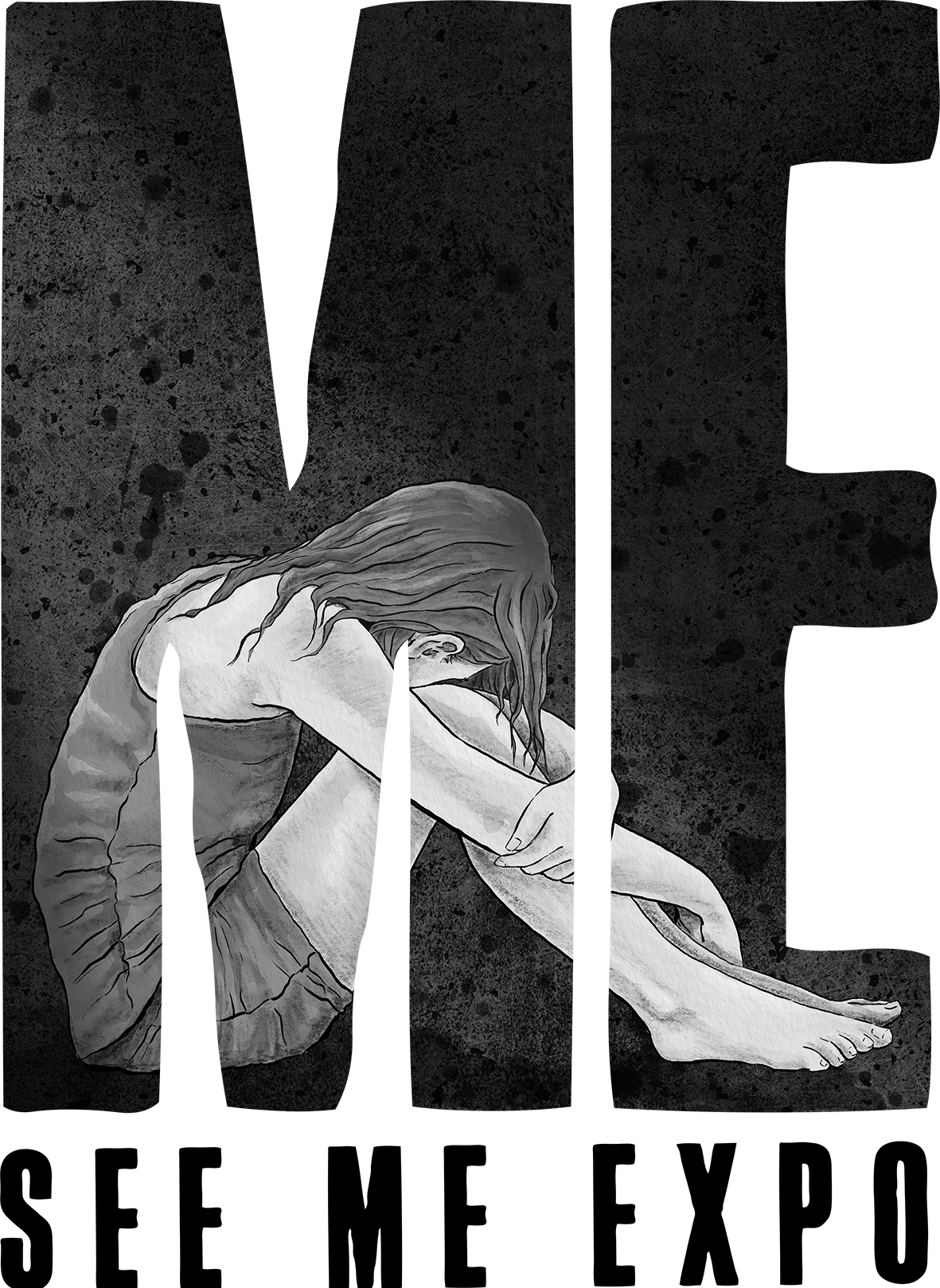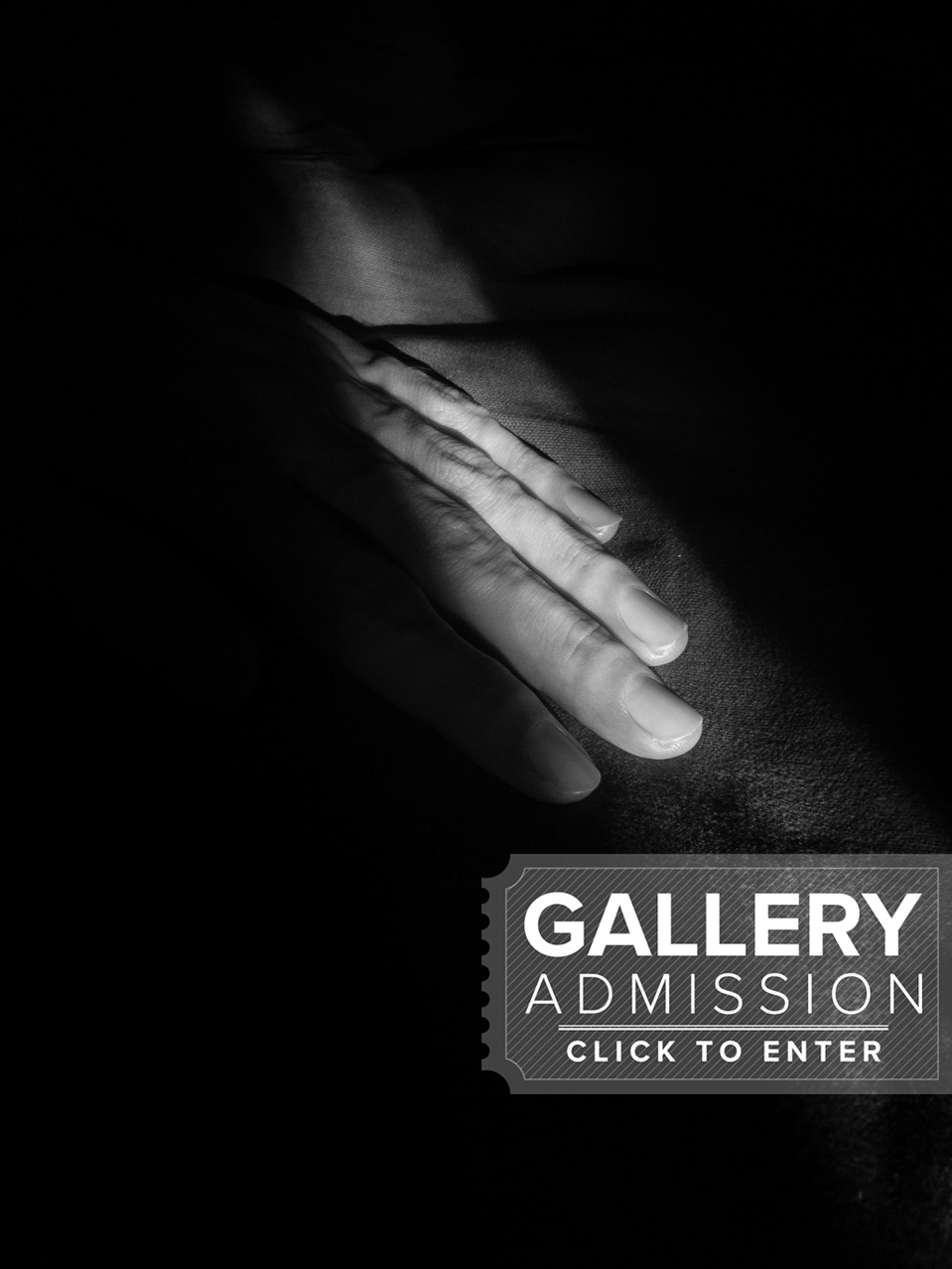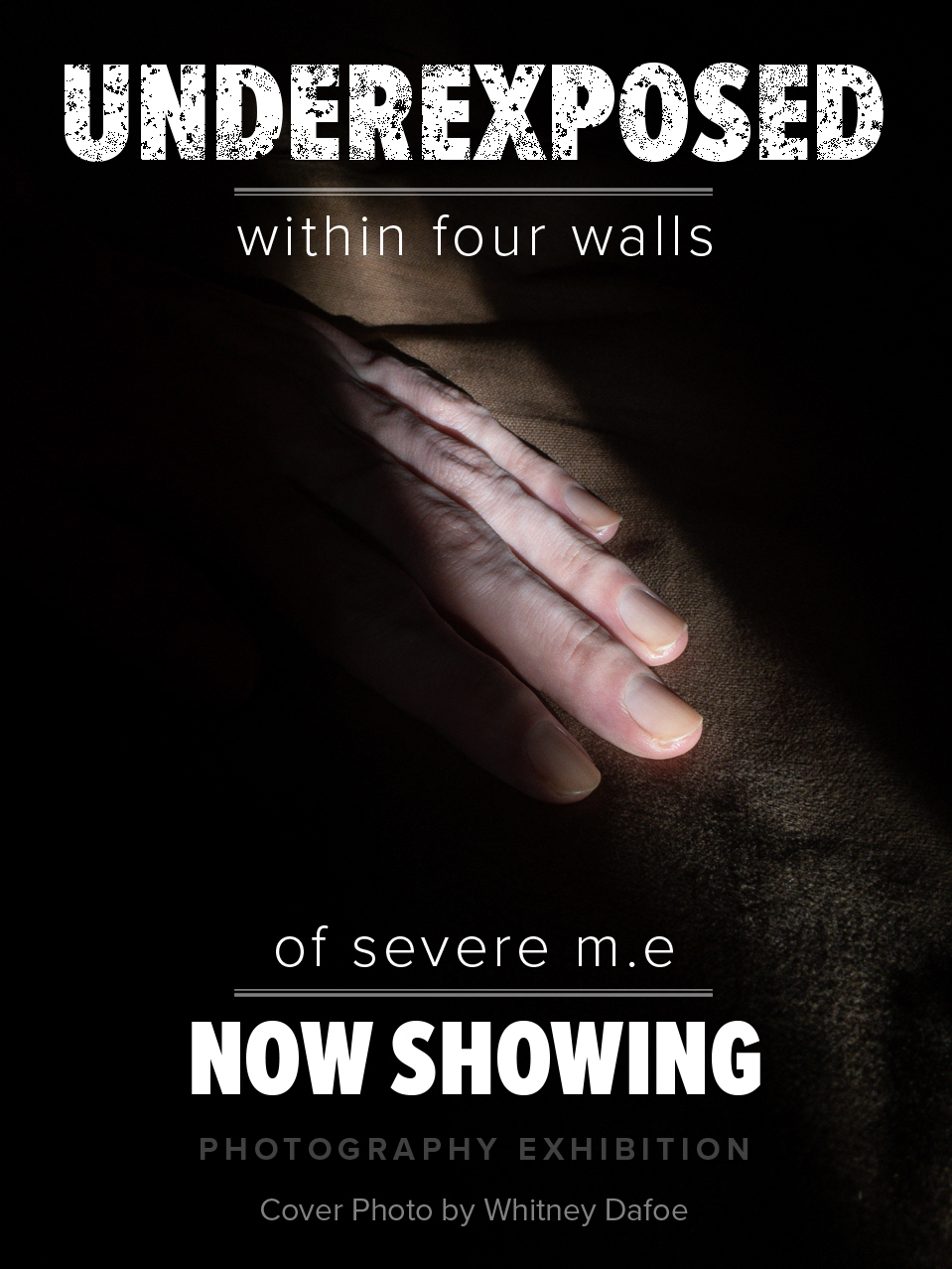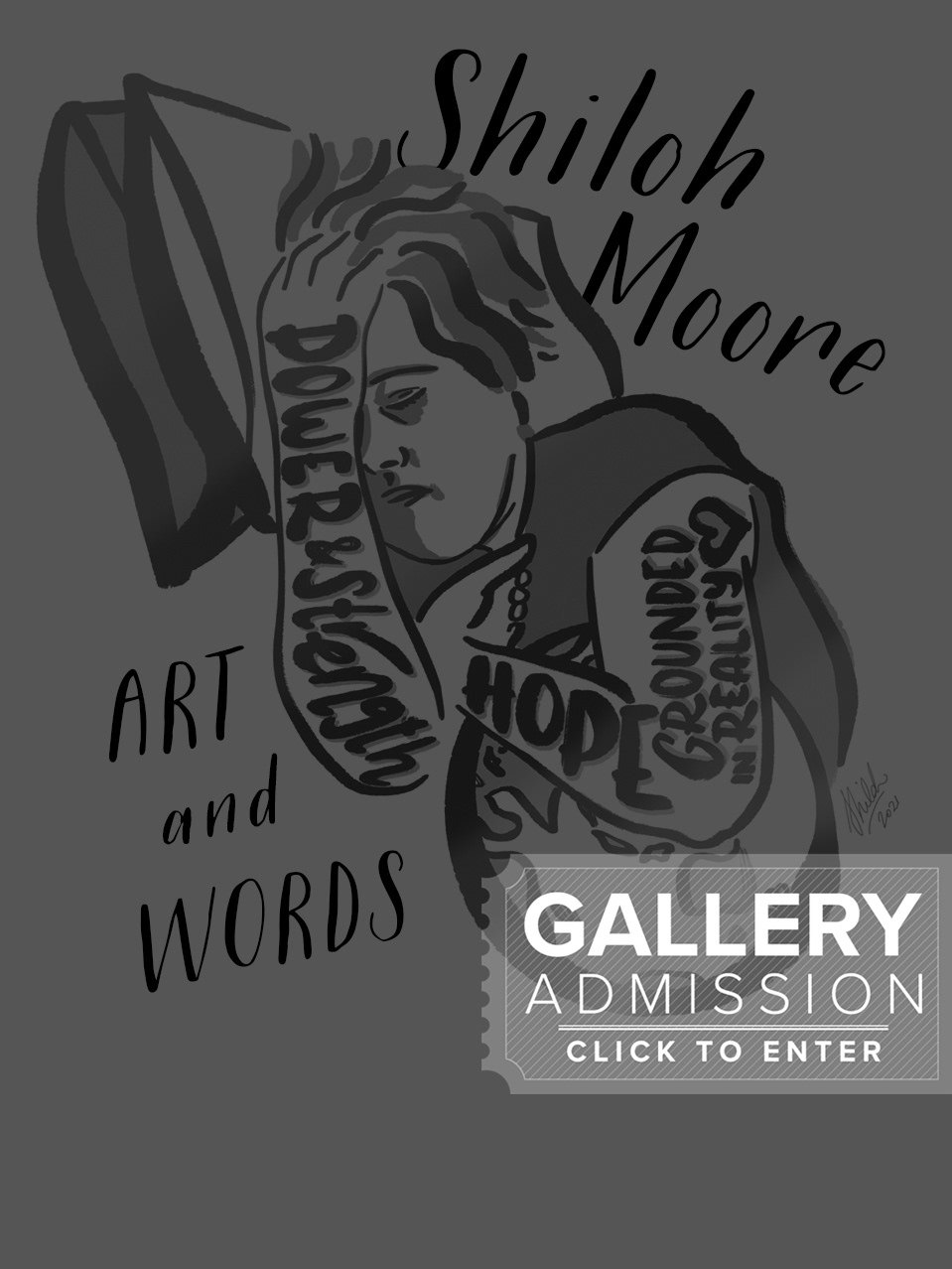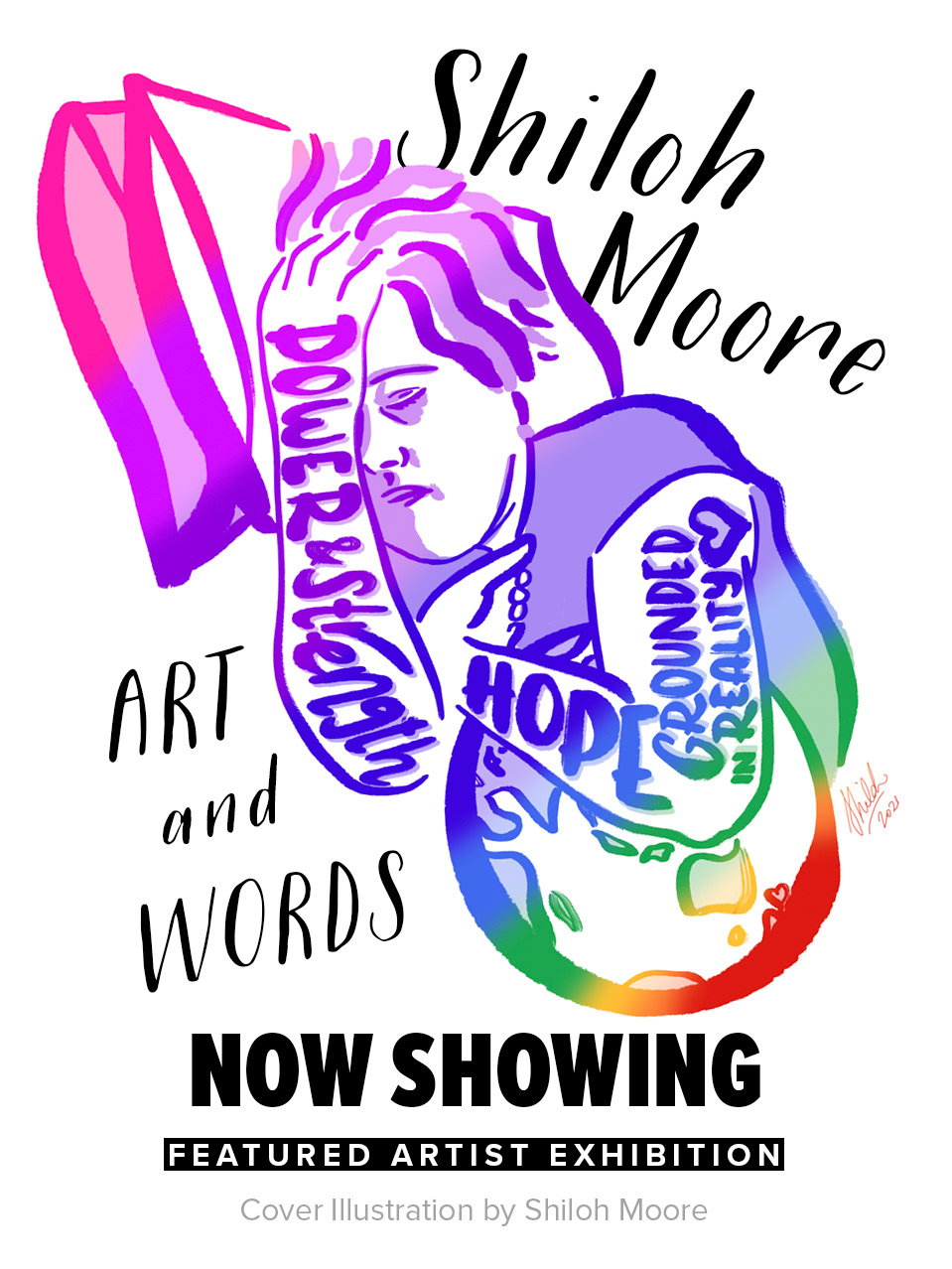d r o w n i n y o u r o w n b o d y
Credits: artist Christina Baltais | design and production Amanda Francey | music Inspire by www.bensound.com
V s c r o l l d o w n t o v i e w e x h i b i t V
Image ID: Exhibition wall displaying photograph of a woman floating in a tub.
Weaving A New World with Art and Advocacy
M y M . E S t o r y
By Christina Baltais
When I look back on my life before ME, it feels like a faraway fantasy land I got to inhabit for a time. One where dreams were tangible, plans were made and kept, and my body was a best friend I could always rely on. We made incredible memories together as I was a backcountry camper, cyclist, competitive swimmer, and an avid fan of impromptu kitchen dance parties. My repertoire on the illness experience was a predictable pattern: when I got sick, I got better. At it’s worst it warranted a rare visit to the doctors office where they had the answers for every ailment.
The land of the healthy is one that you never question your place in, until illness exiles you from it. ME does not discriminate, and exceptional health and fitness are not impenetrable shields. I developed ME just after my 20th birthday, and I had both.
>>
[ [ c o n c e p t u a l p h o t o g r a p h y ] ]
Image ID: Exhibition wall displaying a photograph of a frozen blue rose in ice.
Image ID: Exhibition wall displaying a photograph of a hand wrapped in chains with flowers coming through them.
Image ID: Exhibition wall photograph of a ballerina shadow on a bed.
My symptoms began October 2005 after a viral infection that tore through my body like a hurricane; nothing was ever the same again. My first symptom was a constant pressure in my head accompanied by dizziness/vertigo. Soon I couldn’t exercise, and even the smallest exertions made me fully incapacitated. My body felt so heavy, as if I was wrapped in a water logged weighted blanket I could never take off. Things really progressed by November 2006, and that’s when I was officially diagnosed. My MD fortunately had a lot of experience with ME. Even though he knew the disease was physical, he told me there was nothing he could offer besides antidepressants.
In response to this devastating news, I changed the major of my BSc degree from Pharmaceutical Chemistry to Nutrition and Nutraceutical Sciences. I had hoped that by using my knowledge in biochemistry and human physiology I could find a nutritional and nutraceutical regime to help regulate my immune system, energy production pathways, etc. To paraphrase, I was a sweet summer child in the land of ME.
After I completed that degree I moved straight into a rigorous Naturopathic Doctorate Program (ND). I loved the philosophy of treating the root cause of disease, and it boasted a robust curriculum with a wholistic approach to medicine that combined science with other modalities such as Botanical Medicine, Traditional Chinese Medicine, and Physical Medicine (massage, hydrotherapy, chiropractic manipulations). I felt this was the right approach to healing, and was the place I would finally put ME behind me. I was using a very individualized treatment plan that significantly improved and stabilized the quality of my life for a decade (although far from a cure). When my ME progressed however, the “rules of the game” completely changed. I could no longer tolerate any supplements, majority of foods, and even the sun. It’s a very powerless feeling to experience a progression of symptoms; reach for your trusted repertoire on such ailments, only to discover each one makes you progressively more ill. The very little control I once had over my ME was now gone.
>>
[ [ c o n c e p t u a l m a k e u p a r t ] ]
Image ID: Exhibition wall with a photograph of a woman with blue painted tears streaming down her cheeks.
Image ID: Exhibition wall displaying photograph of a woman floating in a tub.
Image ID: Exhibition wall displaying photograph of a woman with cracked clay covering her face and shoulders.
I was just awakening to the complexity of this disease, the spectrum of variability that exists within it (in only rare cases do people recover), and how pushing my very ill body through an intense program in the desperate pursuit for answers, would bankrupt what remaining health I had left. It was exactly one month before completing my degree when I contracted the flu. This event caused the cascade of changes that lead to a greater decline in my health. This forced me to leave the ND program, and was the second most devastating experience of my life (second to developing ME). Sometimes the show does not go on; because it physically can’t.
The answers I have been searching for to this day do not exist, because the field of knowledge on post-viral disease is in its infancy at best. Our biochemistry and physiology have massive systemic disruptions that world renowned scientists are working tirelessly to try to piece together.
Having been immersed in the wellness culture for as long as I was, I can say without a doubt it can be one of the most toxic places a person with ME can find themselves in. The shame and blame that was explicitly or implicitly expressed for those who have this disease was everywhere. I can count on one hand the professors who were incredible allies and believed ME was real, understood the gravity of it, and what we as patients are up against. It wasn’t until I stepped back from that world did I feel I safe enough to finally say out loud “I have ME, and it’s not my fault.”
>>
[ [ c o l l a g e a r t ] ]
Image ID: Exhibition wall displaying a collage of a woman lying between a set of headphones.
Image ID: Exhibition wall displaying a collage of a house on a bed.
Image ID: Exhibition wall displaying a collage of hands with chains reaching out to the earth.
I always assumed this would be a temporary set back, as I was well seasoned to the rodeo that is ME. I thought I would recover enough and eventually return to school. This time was different, and it’s been seven years since I last walked the halls as a student intern. Each passing year I relive that grief and feel the pain of a dream being taken from me, and replaced with a life not of my choosing.
When you can’t contribute to society in the ways you dreamed of, and can’t “earn a living,” the weight of such statements crumble the foundation of your self worth and the value of your life as a human being. There’s now a language for such feelings, and I can name a pain that had stung me for so long. It’s called ableism, and I had been on the receiving end of so much of it, and had internalized a great deal too.
From this place of grief, I’ve had to weave together a new idea of what life looks like for me, for maybe the next few years or maybe forever. Uncertainty is woven into the fabric of my everyday life, as is the hope that one day I will regain some of my health back. Acceptance is there too, but not in a resigned way. It’s the kind of acceptance where one defiantly looks at a bad hand thats been dealt, and plays it out to the best of their ability.
>>
[ [ s c u l p t u r e ] ]
Image ID: Exhibition wall displaying a sculpture with two mouse traps.
Image ID: Exhibition wall displaying sculpture of a body cast.
Image ID: Exhibition wall displaying a sculpture of a green mannequin head tied down.
The internet in 2016 was also a completely different place than it was back in 2006. I started discovering ME online communities for the first time in over a decade, and I wish I had done so much sooner. It was healing to hear stories so similar to mine, and connect to people who were trying to weave their own new lives as well. These people related to the layers of loss I had lived through, and my reality wasn't up for debate; they believed me because it happened to them too. I felt seen, heard, and understood in ways I had never experienced before. We also wanted to fight for a better future for us, and for all those who fall sick with ME after us. A future where treatments exist for post viral disease.
I had spent years of my life and thousands of dollars attempting to heal my body on my own, to make it a more hospitable place. This is not acceptable for a disease rated with the greatest level of disability when compared to other common diseases, let alone any disease.
I soon began sharing the art that I was making to help process everything I had been through. Conveying an experience is much easier using a powerful image than just using words alone. Most of the art I create has an element of storytelling to it, because I want the viewer to feel what it is that I am trying to say before they read the caption. If art can do that, than I think it’s done its job. I’m also especially interested in exploring the intersection of art and advocacy.
>>
[ [ p a i n t i n g s ] ]
Image ID: Exhibition wall displaying a painting of a woman behind a door in a desert.
Image ID: Exhibition wall displaying a blue pastel painting with swirling lines weaving around a woman.
Image ID: Exhibition wall displaying a painting of wolves taking over a woman's body.
I have mild/moderate ME and it can fluctuate quite dramatically from month to month, day to day, and hour to hour. I create from my couch because sitting crossed legged and having the support of a couch and pillows uses up less energy. I find the process of creating very therapeutic and freeing, because for that moment in time it has all of my attention. If I’m experiencing a flare up it can definitely be frustrating because my mind is always swimming with ideas, but I just don’t have the physical capacity to bring them into the world. I think if you’re a artist with ME, your creative process will look nothing like it did compared to your pre-illness life (much like everything else). Mine is so unpredictable and I work in the pockets of energy that come my way. Pacing is also key, because if I don’t pace then I’ll be too sick to create at all. It’s much easier said then done, because it’s really hard to stop doing something you love while you’re immersed in it.
The goal of my art now is to bring healing, comfort, and a sense of community to our experiences. I want to normalize and create discussion around the difficult and challenging struggles we face, both within our bodies, and with the outside world because of them. I believe this can help build a stronger sense of unity between us all, and help contribute to building a stronger foundation for our advocacy efforts. ME is a deeply stigmatized illness, and I hope my art is one ripple in the wave of change that our community desperately needs for greater research funding, treatments, and compassion. ※
To view more of Christina's work, visit: www.wordsasmedicine.com
[ [ b a k e f o r m e / c f s ] ]

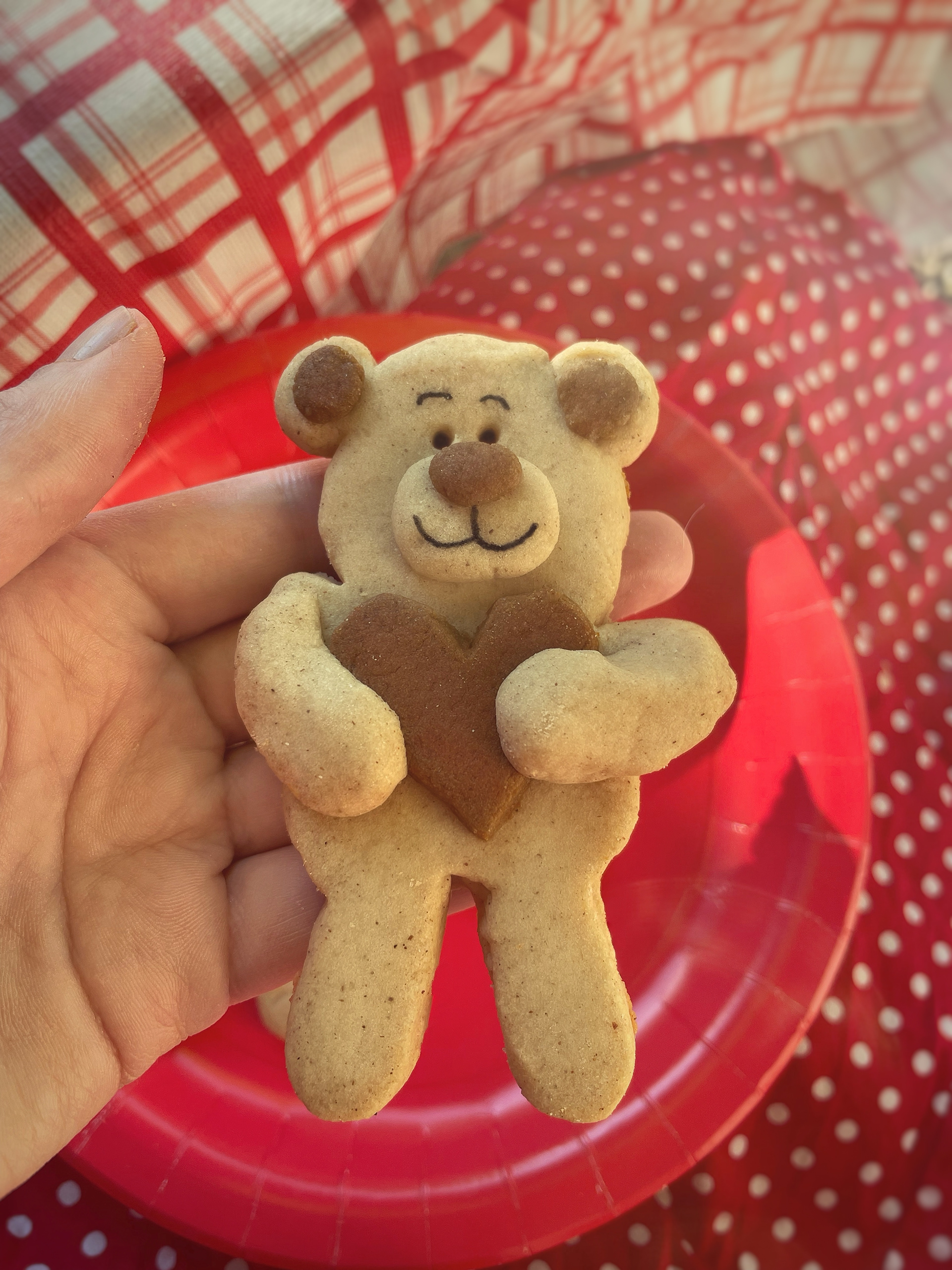
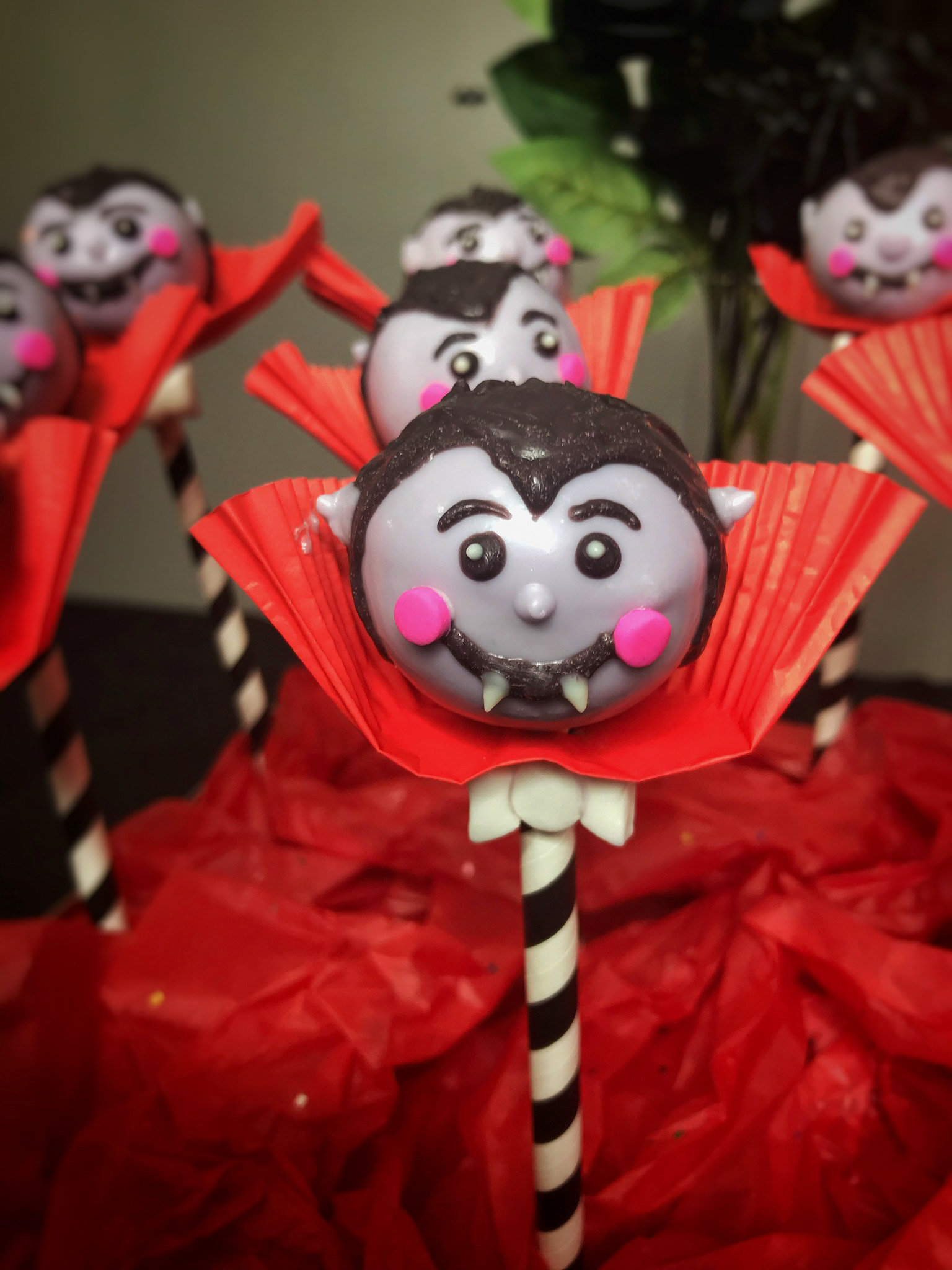
Bake4ME/CFS is a virtual bake off competition that is a light-hearted (and tasty!) way to fundraise for the Open Medicine Foundation (OMF). It was created by Vikings star Jennie Jacques, who developed ME/CFS herself after a severe viral infection at the start of 2019. There are different themes for each round, and a star baker is chosen by celebrity judges who have included fellow Vikings co-stars Katheryn Winnick, Amy Bailey and comedian Miranda Hart.
To learn more about how to enter a bake off event, visit: www.bake4mecfs.com
Please consider donating to Open Medicine Foundation.
Open Medicine Foundation supports collaborative medical research to find effective treatments and diagnostic markers, as well as supporting health care education for the highly debilitating, multi-system disease, Myalgic Encephalomyelitis, also referred to as, Chronic Fatigue Syndrome, or the acronym ME/CFS.
If you're unable to donate at this time, please share this exhibition widely to help raise funding and awareness for ME/CFS, which is in desperate need of biomedical research and support.
